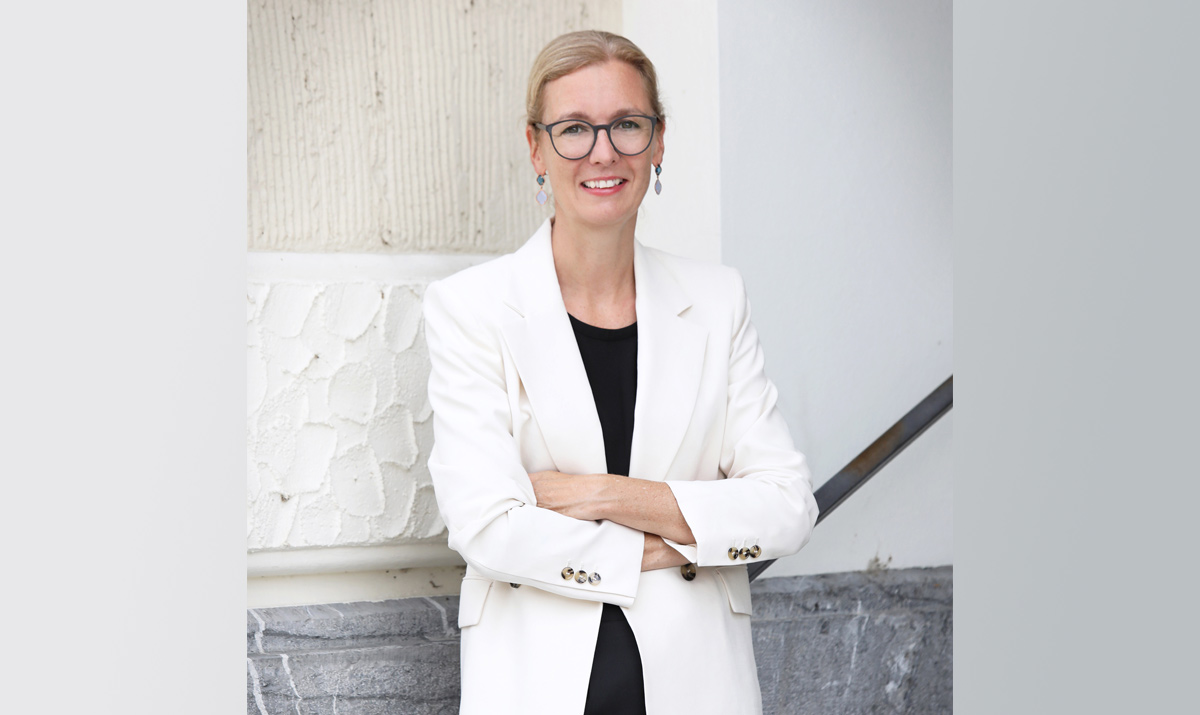
30 Oct Interview with Sabine Monauni, Deputy Prime Minister, Liechtenstein
What factors have allowed for Liechtenstein’s sustained economic growth despite the macroeconomic challenges facing European nations today?
The key to our success lies in our diversity and stability. Despite being a small country, we offer impressive opportunities through our diverse economy, which includes a robust financial sector and a strong industrial base with many small and medium-sized enterprises. This mix is crucial for our economic resilience, particularly during turbulent times like the pandemic when our financial sector thrived while our industry segment faced challenges. Liechtenstein has created an attractive environment for innovative businesses and entrepreneurs. Our close collaboration between the government and private sector allows for quick problem-solving, which our businesses greatly value. We serve as a role model for other nations in having a stable financial situation; Liechtenstein is one of the few nations in the world without public debt. Our unique political structure that combines a direct democracy with a strong monarchy has ensured our long-term stability, a point often noted by investors. In these geopolitically turbulent times, our stable government is a significant advantage. Additionally, our integration into two economic areas — the customs and monetary union with Switzerland and the European Economic Area — gives investors unique access to both Swiss and European markets. My main priority moving forward is maintaining high living standards by fostering a solid and growing economy.
Could you share highlights from your recent visit to the USA in April 2024?
I had a valuable exchange in the USA with political representatives and businesses. I visited Kaiser in Colorado, a company that produces spider excavator trucks. During our discussions, they shared their challenges and advantages as a Liechtenstein-based company operating in the USA and highlighted the importance of the USA as a trading partner. The entrepreneurial spirit in the USA fosters a great environment for businesses to thrive. For Liechtenstein companies, the US market offers significant opportunities for growth, especially since many successful firms operate in niche areas where the European market may be too small. Maintaining strong partnerships with the USA is crucial for our shared economic development, and I emphasized the need to further invest in our relationship with US representatives.
What impact is joining the US-based International Monetary Fund expected to have on Liechtenstein’s stability and foreign relations?
This step has been in preparation for a long time; we held a referendum to secure the population’s support. As Minister of Home Affairs, Economy and Environment, I view this as a crucial move for our country’s stability. Many businesses in Liechtenstein are export oriented. Given ongoing geopolitical challenges, we must ensure access to liquidity to sustain our economy. There is a broad consensus among Liechtenstein businesses to support this initiative to guarantee stability, a key factor in what makes our country so attractive.
How has Liechtenstein’s vocational training system helped to foster such a robust workforce?
Investments in education and vocational training are crucial for Liechtenstein as we lack natural resources and rely on our talented people. Our successful vocational training system, shared with other German-speaking countries, allows students to gain work experience alongside their traditional education. This system allows us to meet the strong demand for skilled workers and craftsmen in Liechtenstein. Our education structure contrasts with those in other countries such as the USA where businesses struggle to find qualified personnel. We believe our expertise in dual vocational training could be beneficial for nations like the USA, and this idea has been well received. Education is our most valuable asset.
What is the government doing to promote digitization of both its public and private sectors?
We adopted our digital strategy a few years ago, and it has evolved significantly. A key success is our electronic identification or eID system, which we are building on. At my ministry, we are preparing to allow businesses to fully register electronically without paper. We aim to be a role model for other countries in this regard. We have streamlined decision-making processes and have the expertise necessary to foster a more conducive environment for business. Our goal is to eliminate legal obstacles hindering the digital transformation of the public sector. We offer subsidies for digital initiatives and have implemented laws that mandate digital communication between businesses and the government. This combination of legal requirements and financial support helps companies effectively improve their digitalization efforts.
How important is meeting Liechtenstein’s green targets, such as having net-zero carbon emissions by 2050?
We are deeply committed to our goals and are a part of the Paris Convention. Our government has increased its ambitions to drive sustainability and is focused on fostering innovative ideas and providing swift support. We welcome creative solutions and are open to cross-border examples of what works and what doesn’t. Our energy strategy focuses on three key areas: reducing energy demand; investing in renewable energy, particularly solar panels; and reducing greenhouse gas emissions. We are also exploring wind power projects since the wind from the south – the so-called Föhn – presents a significant opportunity for energy production. Protecting biodiversity is also a priority. We are developing an action plan to achieve these goals as a member of the Convention on Biological Diversity. We need to preserve our beautiful natural environment in its current state.
